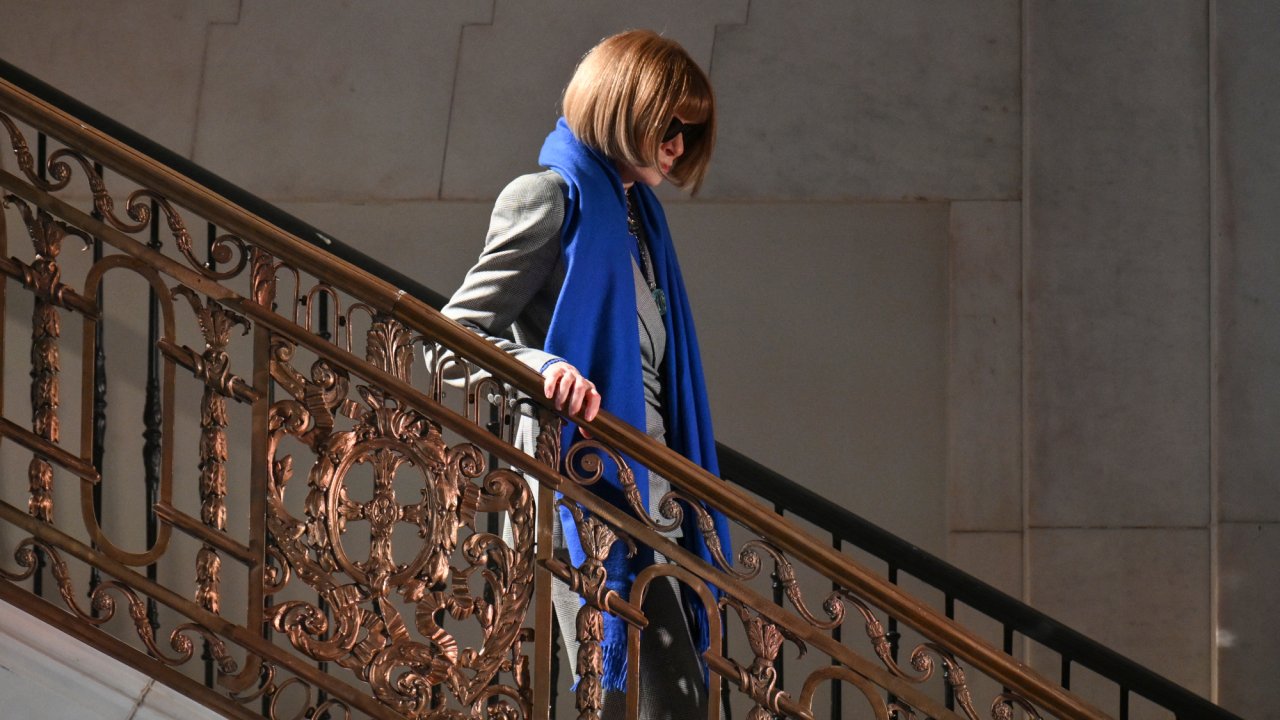Anna Wintour Steps Down: The End of an Era at Vogue US
Photo via © AFP
After more than three decades at the helm of Vogue US, Anna Wintour is officially stepping down. A name that’s become almost synonymous with the magazine itself, Wintour’s departure marks the end of one of fashion's most powerful reigns, and the industry is already buzzing with speculation, nostalgia, and a healthy dose of shock.
Wintour wasn’t just an editor-in-chief. She was the editor-in-chief. Her influence stretched far beyond the pages of a glossy magazine. She built careers, curated cultural moments, and helped decide which designers made it into the spotlight and which didn’t. If you made it into Vogue under her watch, you made it, period.
She had an eye for timing and an even sharper one for talent. She backed John Galliano when he was still cutting patterns on a kitchen table. She believed in Phoebe Philo before most knew her name. And she didn’t just sit in the front row, she decided who got to sit next to her.
More Than a Magazine
Wintour turned Vogue into something that felt like the center of fashion’s universe. The September Issue became an event. The Met Gala turned into a global spectacle. She made the editor’s chair feel like a seat of power usually reserved for politicians or CEOs.
Under her leadership, Vogue adapted to change slowly, sometimes awkwardly, but never silently. She moved the brand through the rise of celebrity culture, the arrival of influencers, and the digital tidal wave that reshaped everything. Whether you agreed with her decisions or not, she stayed relevant in a way few media figures have managed to do.
What's Next for Vogue?
There’s no confirmed successor yet. The guessing game has already started, some say it’ll be Chioma Nnadi, others think Edward Enninful, or a new name entirely. What’s clear is this: the world Vogue is stepping into now is louder, faster, and more fragmented than the one Anna first walked into in the late ‘80s.
Audiences today demand more transparency, more range, more accountability. And fashion media, once a gatekeeper, now has to share the table with creators, critics, and fans who post straight from their bedrooms.
Her Legacy, For Better or Worse
Wintour’s career wasn’t without friction. Her version of fashion was unapologetically elite for a long time. The push for inclusion and diversity took longer than it should have. But she also brought people into the room who wouldn’t have been let in otherwise. She made space, sometimes reluctantly, sometimes boldly.
She will always be remembered for her discipline, her precision, and her ability to turn taste into something that shaped the culture. Whether that legacy gets rewritten or reinforced will depend on what Vogue chooses to become next.
One thing’s for sure: Anna Wintour leaving isn’t a staffing change. It’s a seismic shift in how fashion might be told, shaped, and remembered in the years to come.
Photos below via © Gtres






